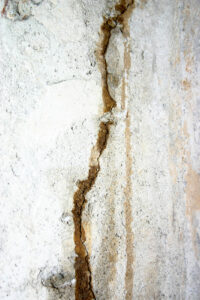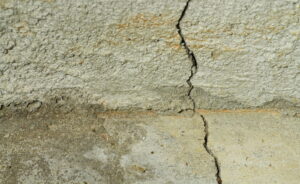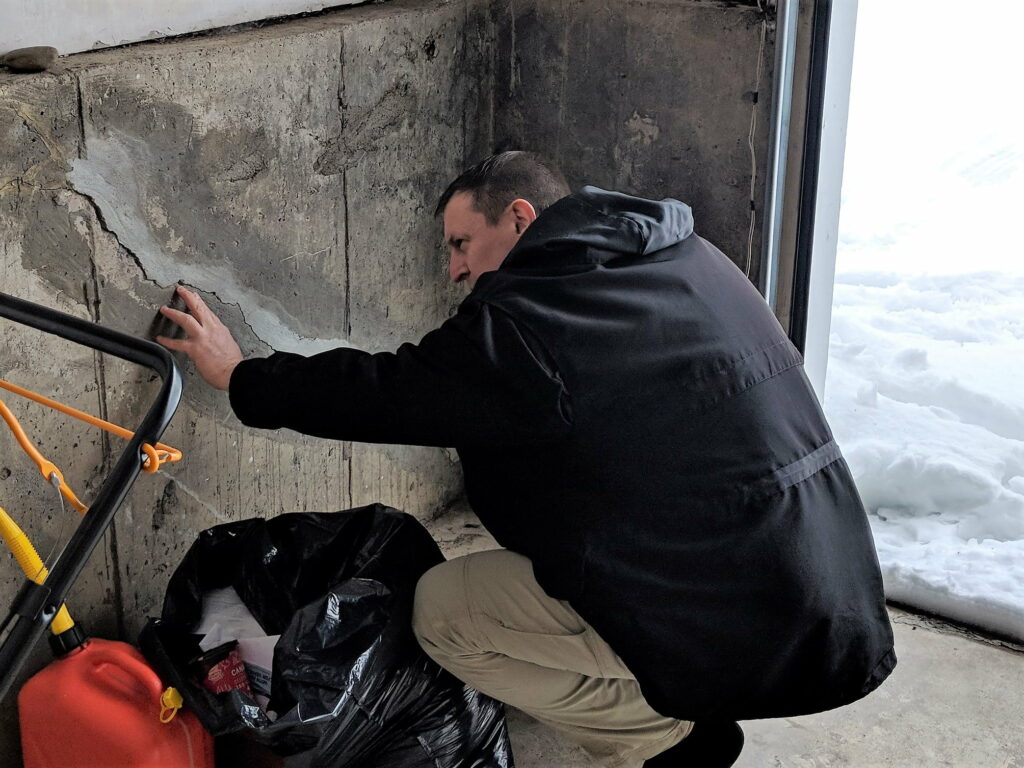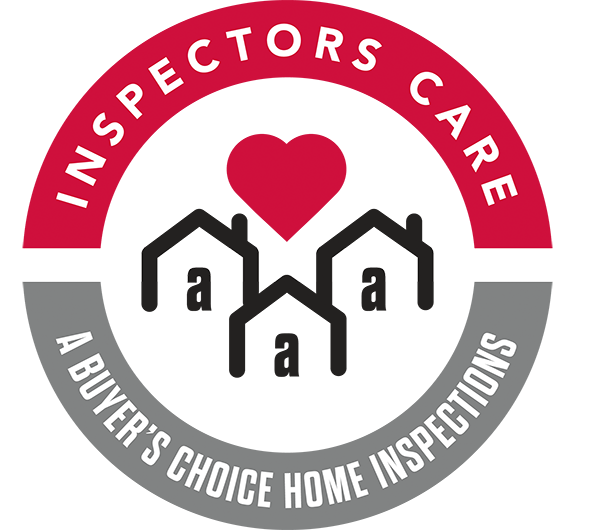When most people think about foundation cracks, basement flooding/moisture intrusion comes to mind. Homeowners and homebuyers alike begin worrying that their most prized possessions could be ruined by water making its way indoors, and they could face a large out-of-pocket expense.

But, what people fail to realize is that the impact of a foundation crack could be way worse than water entering the basement. The entire integrity of the foundation and its ability to support the home could be at stake. And repairs for this type of crack could add up to tens of thousands of dollars.
Nobody wants to hear that the crack in their basement wall or floor could end up causing thousands to properly repair, but this is something you don’t want to leave to chance.
And you definitely want to be made aware of this risk if you’re a potential homebuyer.
When should you be concerned?
The most worrisome types of foundation cracks are typically wider in diameter – at least 1/4 inch or greater.
Using a tape measurer can be difficult for anything less than 1/4 inch. Here’s an easier size reference: 1/32 inch = the width of a credit card; 1/16 inch = the width of a nickel; and 1/8 inch = the width of two nickels.
If you’re keeping an eye on foundation cracks and notice that they’re growing, this can also be cause for concern.
Types of cracks
There are many types of foundation cracks that can occur, signaling some type of damage, but repair work will vary based on the type of foundation material, as well as the size, shape, direction and location of the crack.

These include wall shrinkage cracks, wall settling cracks, and floor shrinkage and settlement cracks. During an inspection, cracks can be categorized as: cosmetic and, therefore, requires no action; possible issue, which requires monitoring for changes in size/direction; or significant, which requires further evaluation and possible repair.
Most cracks are normal shrinkage cracks that occur in the months following construction as the concrete cures. Shrinkage cracks are generally less serious, where settling cracks may require further investigation and repair. The key is in trying to differentiate between the two so that the crack(s) can be properly categorized, ensuring that the best possible recommendation and advice is communicated to the client.
Get an inspection
Regardless of what type of crack you see in your foundation, it’s always best to get them inspected by a professional. It’s a small price to pay to help set your mind at ease. While an inspector will never offer a guarantee that any crack is harmless, they know what to look for to determine how bad the crack is and when it should be repaired, if applicable.
And, if repairs need to be made, it’s better to begin right away rather than ignoring a crack until it worsens.
Have questions about foundation cracks or any of our inspection services? Answers are just a call or email away.
Contributing to this blog was Adam Anderson, Franchise Owner in Fredericton, New Brunswick. Find an Inspector near you: https://abuyerschoice.com/locations








